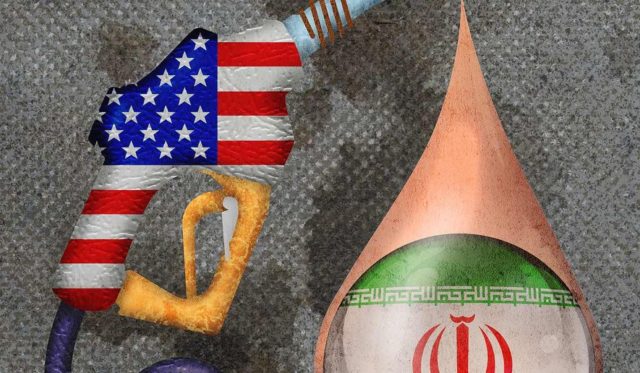The Biden administration, in concert with European and other allies, has imposed a wide range of sanctions on President Vladimir Putin’s Russia in the wake of the devastating invasion of Ukraine. Everything from banks to individuals to soccer teams are feeling the heat. Not unreasonably. On the other hand, Russian oil exports continue and just enough banking capability has been left in place to finance the West’s import of Russian oil and natural gas, at inflated prices that serve Russia’s interests.
The situation is testimony to the gross stupidity of both the EU and the United States in energy policy. Each took what it perceived to be the easy way out of managing its resources and its population’s expectations.
More frightening is that while the West wishes to be seen as tough on Russia, the U.S. appears ready to replace Russian oil with oil from the criminal Islamic Republic of Iran. While there have been rumors of an impending deal for weeks, Iran’s leverage at the Vienna talks has increased as oil prices rise and governments want to increase the supply on the world market.
OK, but Iran? What makes Iran a better partner than Russia?
It will be hard but leave the nuclear issue aside for a moment. Iran is a party to war crimes in Syria that saw upwards of 350,000 dead (a low-end estimate) and 13.5 million internal or external refugees, more than half of the entire pre-war population. Iran is the arms supplier to Houthis in Yemen, who are responsible for attacks on Yemeni, Saudi and UAE civilians, plus the use of child soldiers — hundreds of whom have died, according to the U.N., plus rampant hunger and disease among its own people.
Iran is the supplier of Hezbollah government in Lebanon that has crashed the Lebanese banking system throwing more than half the population into poverty, and brags about its arsenal of precision-guided missiles aimed at Israel. It is responsible for the rise of ISIS in Iraq and Syria, and the pro-Iran militias in Iraq that have wreaked havoc among the civilian population and grabbed Iraqi oil for sale abroad.
To trade Russian oil for Iranian oil would be to trade war crimes for war crimes.
Russia supplies about 40% of the EU’s natural gas imports; the U.K. is less dependent. Russia is also the EU’s largest oil trading partner. Data from the U.S. government shows that American oil imports from Russia rose 28% in the first 11 months of 2021. While amounting to only about 7% of total U.S. oil imports in 2021, it was double the amount of the previous year and now totals about 500,000 bbl/day. Paying for that funds the Russian war.
Since the advent of the Biden administration, Iran’s exports have risen to more than 1 million bbl/day with most of the increase going to China as the administration restored sanction waivers for Chinese purchases. Iran’s total capability is more than 2.5 million bbl/day. Real numbers are hard to come by, as Iran ships oil as originating in other countries, including Oman, UAE and Malaysia, but the general trend is clear.
The U.S. and its allies should be taking both short- and long-term measures to help ensure energy independence.
Short term, the U.S. should reopen the Keystone XL pipeline that is designed to carry more than 830,000 bbl/day from Alberta to the United States. Rescinding the ban on fracking leases on federal property and canceling new and expensive regulations would be a quick fix as well.
France and Germany are considering an increase in nuclear power. France has already announced an increase and even Germany’s Green Party announced there are “no taboos” in reducing Germany’s dependence on Russia, including the possibility of extending operation of Germany’s three remaining nuclear power plants beyond the end of this year. They will have help. Sweden’s government has approved a new nuclear waste storage system “to take responsibility, both for the environment and people, but also for Sweden’s long-term electricity production and Swedish jobs,” according to the environment minister. And to stymie Sweden’s adversaries, as the historically neutral county eyes membership in NATO.
For the future, German Greens are also considering extending coal-fired power past the planned 2030 cutoff — and the world won’t necessarily be dirtier. The U.S. is, in fact — or was, in fact, a leader in both economic growth and emissions reduction from 2005 to 2018. American total CO2 emissions fell 12%. Since 2005, American greenhouse gas emissions have fallen by 10%, and power sector emissions by 27% — as the U.S. economy grew by 25%. The U.S. can teach, and the U.S. can learn.
The Biden administration’s energy czar John Kerry lamented that war in Ukraine could lead to “massive emissions” and distract from the fight against climate change. A greater fear is empowering criminal regimes in both Russia and Iran to hold Western life and economic growth hostage in the present and in the future.






